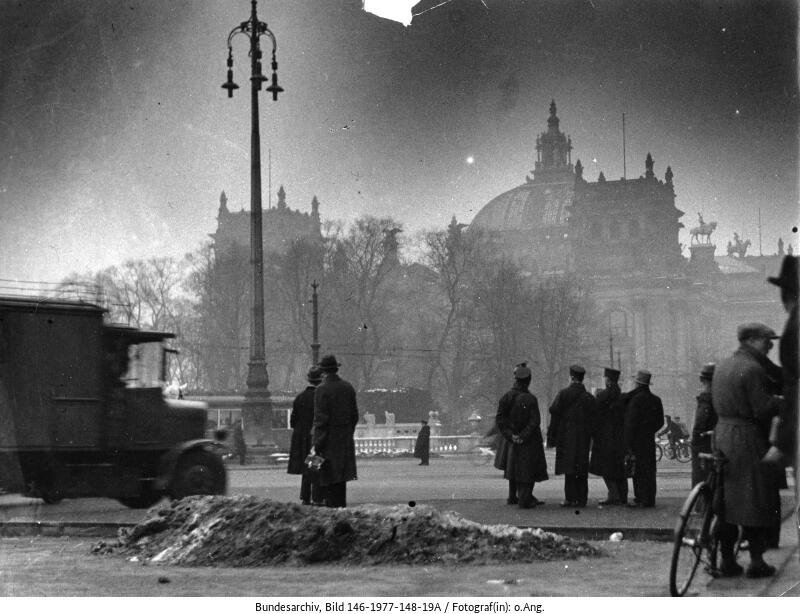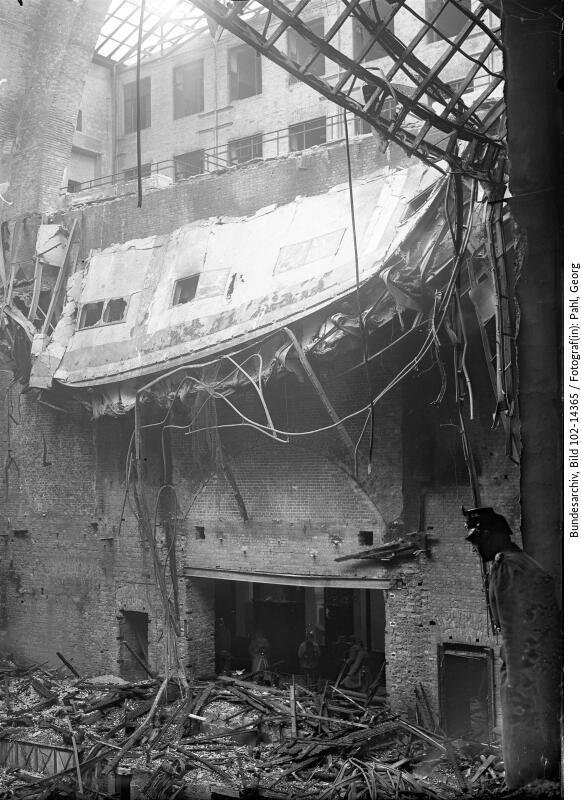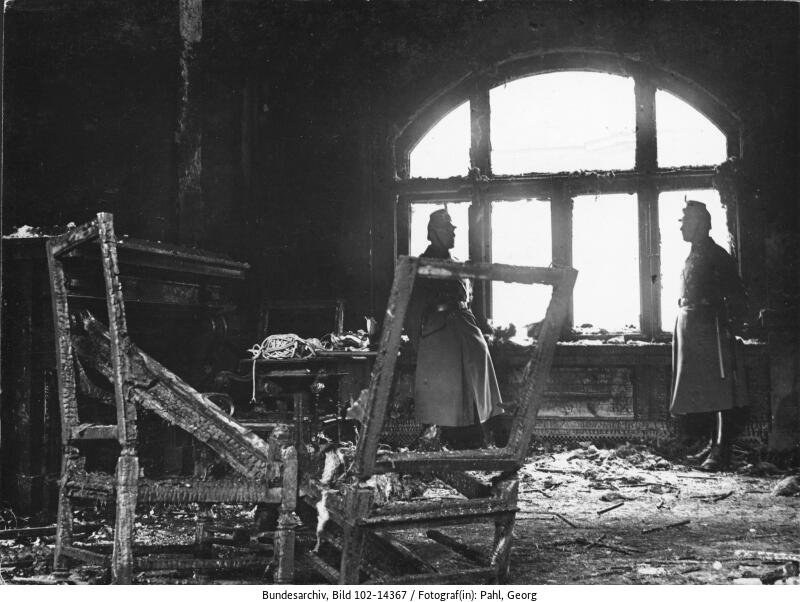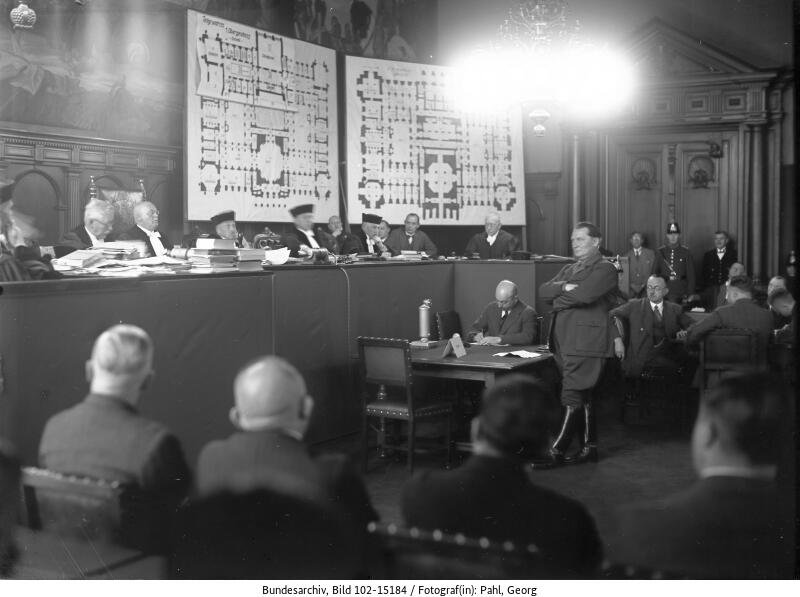On 27 February, a fire broke out in the Reichstag, the German parliament building in Berlin. The security staff overpowered the suspected arsonist: Dutch communist Marinus van der Lubbe. The building was badly damaged, and the parliament needed a new location to convene. The Nazi leaders took advantage of the arson to deal with their political opponents: the communists and social democrats. Hitler convinced his government that the arson was part of a coup. President Paul von Hindenburg declared a state of emergency. His so-called Reichstag Fire Decree severely restricted the rights and liberties of the population. This essentially laid the basis for the Nazi dictatorship.
Reichstag fire
Feb. 27, 1933 Berlin
Due to the state of emergency, several rights no longer applied, such as freedom of expression, right of assembly, and confidentiality of the mail. Also, the police could arbitrarily search houses and arrest people. The Nazis used these powers to persecute their political opponents. Within a few weeks, 10,000 communists had been arrested.
Marinus van der Lubbe was unable to prove his innocence and was sentenced to death. There are indications that Nazi leader Hermann Göring started the fire with a view to blaming the communists, but this was never proven.



